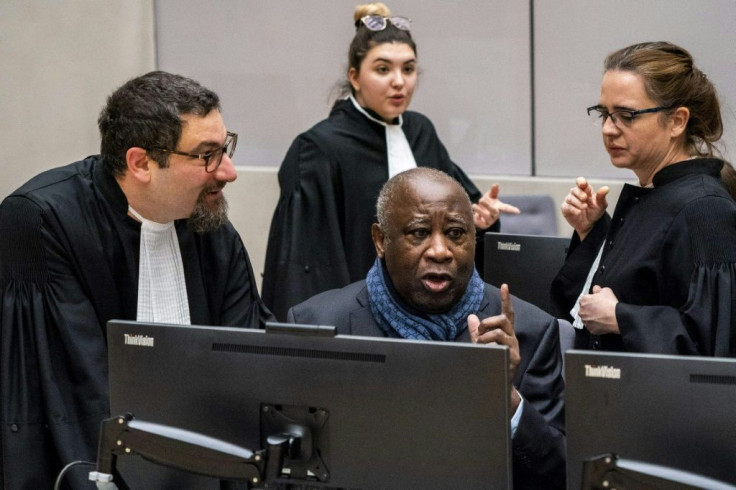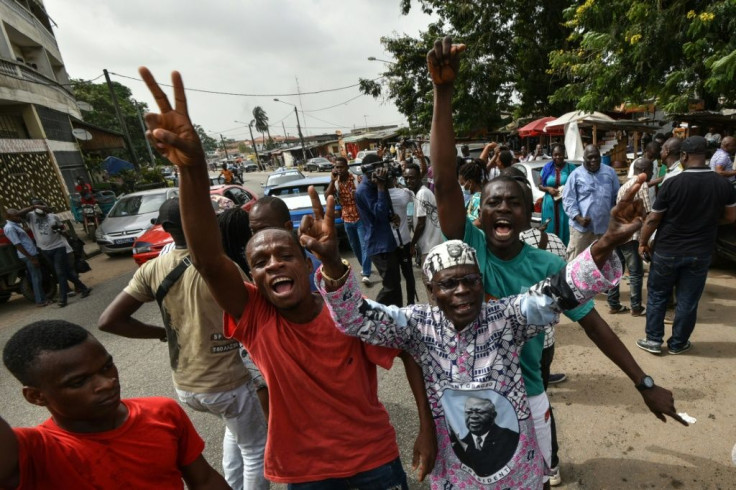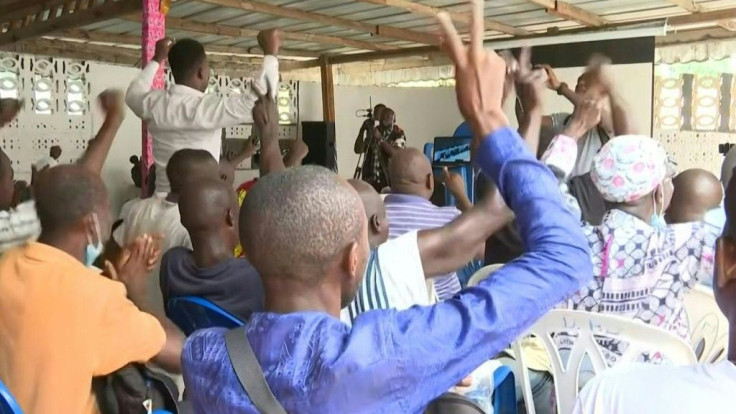ICC Upholds Acquittal Of Ivory Coast's Gbagbo
The International Criminal Court on Wednesday upheld the acquittal of Ivory Coast's former president Laurent Gbagbo of crimes against humanity, paving the way for his return home after a decade away.
The first head of state to stand trial at the tribunal, 75-year-old Gbagbo gave the thumbs up as appeals judges confirmed that he was finally in the clear over a wave of post-electoral violence in 2010-11.
More than 3,000 people were killed in the West African nation after Gbagbo disputed the results of elections won by Alassane Ouattara, the current Ivorian president.

Supporters cheered in Abidjan and outside the Hague-based court as it dismissed a prosecution appeal against the original 2019 decision by trial judges to acquit Gbagbo and his former youth leader Charles Ble Goude.
ICC judge Chile Eboe-Osuji said the court's appeals chamber had decided by a majority to "reject the appeal of the prosecutor and confirm the decision of the trial chamber".
The ICC ordered the release of Gbagbo and Ble Goude, instructing court officials to ensure the "safe transfer" of the pair to any country ready to receive them.
Gbagbo has been living in Brussels under the court's orders since his release from detention in 2019.
The former leader has said he plans to return to Ivory Coast if cleared by the ICC, thanks to an olive branch offered by his erstwhile rival Ouattara.

Gbagbo stood up and applauded at the end of the hearing, while Ble Goude shook his fists in a sign of victory, an AFP correspondent in court said.
Gbagbo's wife Simone said she was "satisfied" with the decision and that the trial "should never have happened."
"The ball is now in the government's court" for his return, she told AFP in Abidjan.
Gbagbo's destination on Wednesday remained uncertain, as he left the court without speaking to reporters.
There was "nothing to prevent him returning to Ivory Coast," his lawyer Emmanuel Altit told AFP.
Ble Goude meanwhile said he would ask the government if he could return, following a conviction in absentia in Ivory Coast.
"I'm Ivorian, I will go back home but only when the government will... give me the authorisation," Ble Goude told reporters.
The collapse of the case against Gbagbo was one of the ICC's biggest failures since it was set up in 2002 as the world's only permanent war crimes court.

After elections in 2010, Gbagbo refused to hand over power to Ouattara, the current president, sparking an outbreak of deadly violence.
But French troops eventually intervened and Ouattara's loyalists drove Gbagbo from his bunker. He was sent to the ICC in The Hague in 2011.
His trial started in January 2016, but three years later judges said they had found that prosecutors had failed to make their case.
Prosecutors then appealed, saying judges made serious errors in initially giving the judgment orally and not issuing a full written judgement until months later.
But the ICC appeals judges said Wednesday it was "self-evident" the verdict would have been the same however it was delivered.
They also upheld the original findings that the evidence against Gbagbo was "exceptionally weak".
Outgoing ICC prosecutor Fatou Bensouda said she would respect the appeal court's decision -- while noting that two judges would have upheld her appeal.
The verdict was closely watched in Ivory Coast, where Gbagbo's shadow hangs over a nation still mired in political crisis.
"I'm very emotional," Victorine Tiebesson, an activist from Gbagbo's Ivorian Popular Front (FPI), told AFP in a restaurant in Abidjan's Yopougon district where about 50 supporters watched the hearing.
"He is a key link in the reconciliation of Ivory Coast."
Dozens of joyful supporters shouted "free, free" at Ble Goude's party headquarters in Abidjan as the verdict came in.
An Amnesty International statement expressed regret that "the court has held no one responsible for atrocity crimes committed during this period".
The ruling meant that "whether at the national or international level, victims of the 2010-2011 violence are yet to see justice and reparations for the harm they suffered," the rights group said.
Gbagbo was president from 2000 to 2010, a time of turmoil in the world's top cocoa grower, formerly a haven of peace and prosperity in troubled West Africa.
But after Ouattara offered to give Gbagbo passports to aid his return, Gbagbo's FPI party ended a years-long electoral boycott.
© Copyright AFP 2024. All rights reserved.











